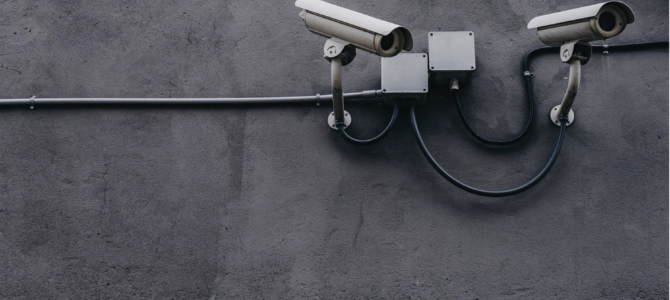
What would happen if your last politically charged conversation with your family or your friends was broadcasted on primetime television? Ponder the potential risks for a moment. Would you still be employed in the morning? How would the media respond? For students, would you be concerned that your teachers would grade you differently or that your fellow students would try to cancel you?
If you’re like a great many Americans, these are all serious questions that would arise if the thoughts you express when you’re with your loved ones were publicized beyond the confines of your dining room table.
Why is that? Are your views really that hateful, like the left tries to brand them? Perhaps it’s more likely that the left’s long march has been so successful that the centers of power in this country have become untethered from the realities of public opinion, and now enjoy the ability to dogmatically enforce a worldview that remains unpalatable to significant swaths of this country.
This is certainly the case with the so-called “mainstream” media, where the mainstream opinions of so many Americans find so little representation. The same can be said for several other centers of power.
What’s even more telling is that unless your thoughts are genuinely wicked, it’s almost certain that millions of viewers would be (quietly) applauding your segment, delighted that someone finally took what they’ve been saying for years in hushed tones and brought it out into the open. This was, after all, a significant part of Donald Trump’s appeal.
It is exactly because our ruling class is so far removed from the perspectives of so many decent, well-adjusted people that this class feels the need to punish those who aren’t equally as tone-deaf. It is exactly because of this disconnect that they feel threatened, and it is exactly because they feel threatened that they are implementing America’s social credit system.
America’s Emergent Social Credit System
The term “social credit system” is almost exclusively applied to China, where the state rewards and punishes various behaviors through the use of a centralized database. If citizens smoke in non-smoking areas, drive poorly, criticize the government, or engage in other frowned-upon activities, their score can drop, even preventing them from traveling, owning a pet, or using high-speed internet.
This score can be raised if certain actions are taken, such as praising the state on social media or paying back debts on time. Those with high scores enjoy various benefits, including having their profile boosted on dating apps or not having to pay cash deposits when booking a hotel.
While America lacks a single central entity that monitors activity and assigns citizens a score based on their conduct, our system, through a diffuse array of entities, employs one of the CCP’s most potent weapons: the blacklist. Those who are put on the blacklist can expect to be prohibited from travel and see their names and faces broadcasted on billboards with the word “untrustworthy” emblazoned below.
America has wasted little time developing our version of the blacklist. Political correctness, cancel culture, and modern technology have all produced an environment in which Americans who oppose the ideology of the ruling class or flout its diktats are shunned from civil society and made the targets of the two minutes hate.
While the CCP clearly defines how to raise one’s score, the American system rarely offers redemption. Apologizing only digs your grave deeper, signaling to your opposition that you will crack under pressure and that blood is in the water, only encouraging future onslaughts. To make matters worse, the goalposts are in a state of constant flux, meaning that system-approved speech today could get you canceled next week.
Take for example Nicholas Sandmann, who was found guilty of smirking while straight, white, Christian, and male. The ensuing media frenzy featured venomous attacks from public figures, including a tweet from filmmaker Jack Morrisey that depicted “MAGA kids” going “hats first” into a woodchipper and one from CNN’s Reza Aslan that described the teen as having a “punchable face.” Sandman’s high school reopened under police protection following the threats.
While Sandman was able to successfully sue various media outlets, smaller-profile cases have sadder endings, like one instance where a Hispanic man was fired for allegedly making a “white power sign” while cracking his knuckles despite pleading for his job.
One University of California at Los Angeles professor was suspended for refusing to exempt black students from a final in the wake of George Floyd’s death. There’s also the case of the McCloskeys, whom the media attempted to associate with racism and were otherwise smeared after the couple defended their house against a mob that had broken into private property.
Former Republican candidate Laura Loomer has been banned on various payment processors, including PayPal, Venmo, Stripe, and GoFundMe, as well as Uber and Lyft and virtually all mainstream social media platforms.
This trend is one that threatens all dissenters from the regime, not just those with less mainstream views. Remember, while more obscure, controversial figures were the first ones purged from Twitter, it only took a couple of short years before the president of the United States was banned from the platform.
This type of social shaming is promoted by those who are supposed to serve the public, with Rep. Alexandria Ocasio Cortez saying someone needs to keep track of “Trump sycophants” so that they can’t “downplay or deny their complicity in the future.”
Community Is the Antidote to Cancellation
The enforcers of America’s emergent social credit system are most empowered when they can cut you off not only from your job, but from your community and all other sources of support. The remedy? Establish genuine, in-person authentic communities built around shared values.
In “The Prince,” Niccolo Machiavelli teaches us not to build fortresses, warning of their likelihood to socially isolate rulers, when he writes “the best fortress is to be found in the love of the people, for although you may have fortresses they will not save you if you are hated by the people.”
In our time, fortresses are constructed on our behalf under the guise of increased social connection. What percent of your Facebook friends would stick up for you if the administration at your school or the HR department at your work came after you for an off-color joke or a sincere belief that was considered mainstream just a few short years ago?
Communities that would defend your reputation and potentially even your economic well-being against those who would put you on a blacklist for “misgendering” someone or otherwise blaspheming the religion of woke, can only be built in the real world.
These communities, however, can’t become fortresses in and of themselves. Playing defense and hiding from the opposition just means passing the burden to the next generation. There’s nowhere you can go where you will not be chased down by LGBT propaganda in children’s shows, a politically motivated refugee drop, or any other consequence of leftism. It’s win or lose. You don’t get to opt out.
These same social bonds that can protect you from cancellation must be put to use in a proactive, not just defensive, capacity. Voting isn’t enough. Get involved in all aspects of public life. Run for office, write for local papers, show up to school board meetings, and be present anywhere voices are heard or decisions are made.
Use these grassroots bonds to build high-trust communities that can propel members to powerful positions. In those capacities, they’ll be able to provide air cover for the grassroots by leveraging their institutional support for the benefit of the community.
Intertwining your life and livelihood within these communities isn’t just the most effective way to inoculate yourself against America’s emergent social credit system, it’s also the only way we can build a resilient base from which social and political action is possible.









